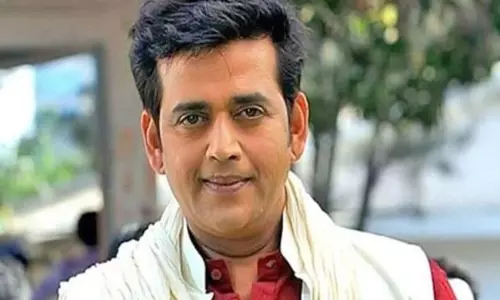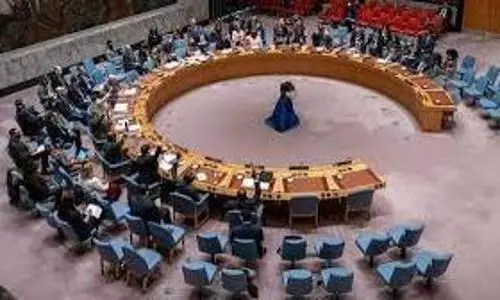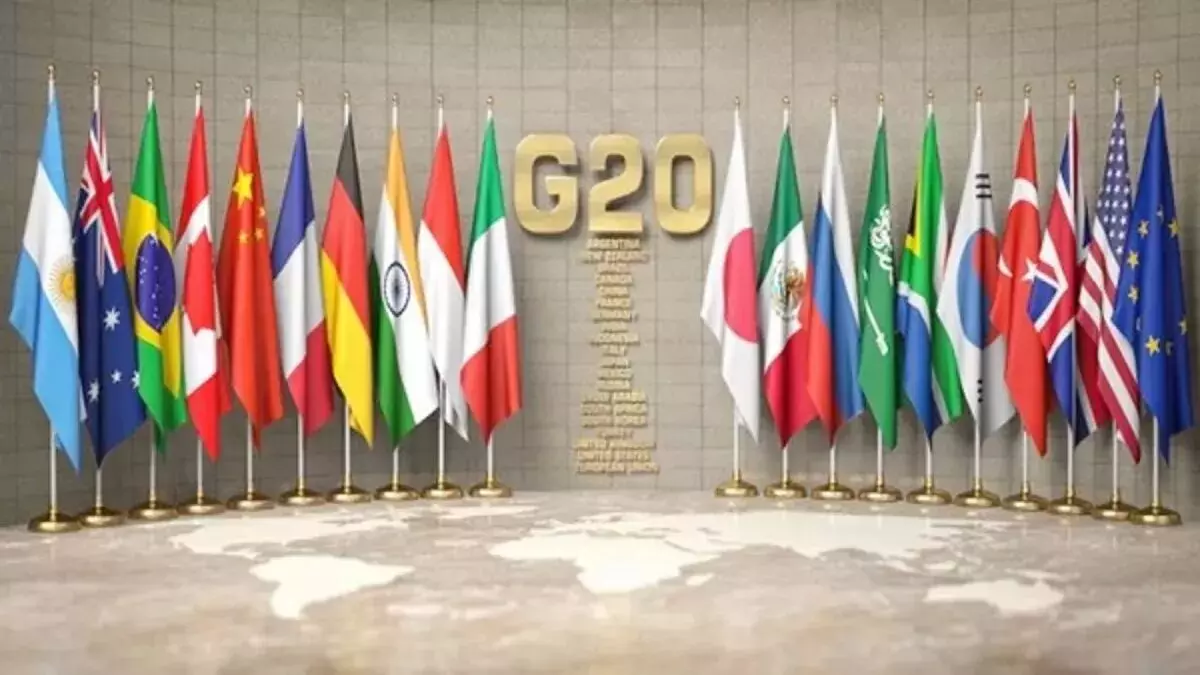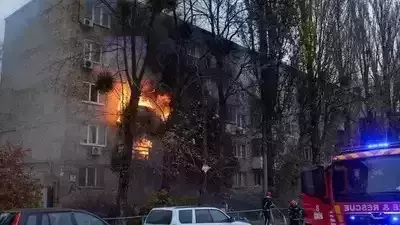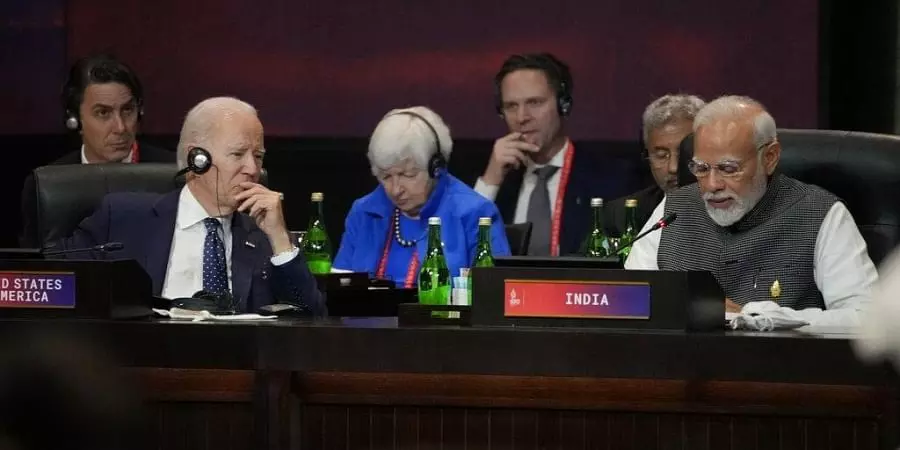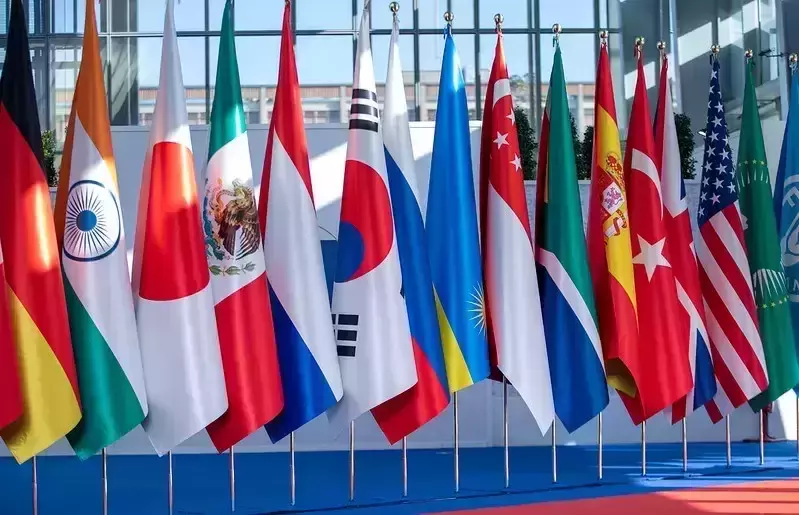
When G20 leadership passes to India
text_fieldsFollowing the conclusion of the G20 summit in Bali, Indonesia on November 15 and 16, there were customary questions regarding who had accomplished what. Three key objectives were identified when the G20 was established in 1999 with the European Union and the 19 nations with the world's leading economies. These were to have policy coordination between its members in order to achieve global economic stability, sustainable growth, to promote financial regulations that reduce risks and prevent future financial crises and to create a new international financial architecture. In 1999, during the aftermath of the financial crisis, it was the finance ministers and central bank governors that represented members. But in 2008, it got elevated to the level of heads of governments participating. And that speaks for the importance attached to the conferences and the issue they raise. Also significant are its constituent nations: the G20 countries house two-thirds of the world's population; and they are estimated to account for 85% of the world's GDP. Despite this, it is important to consider how far the Bali Summit has progressed from previous conferences.
Economic difficulties, however, were overshadowed by political ones.The summit was held amid worries that the world will soon experience another recession. Despite acknowledging the impact of political equations on economic factors, Russia has been targeting Ukraine during the past two days and in the weeks leading up to the summit. First, it was reported that Russian President Vladimir Putin would attend the summit. Then it was reported he wouldn't. The same was the case with Ukrainian President Zelensky. Having heard that Zelensky would come, Putin also decided to participate. But later, Russia was represented by its Foreign Minister Lavrov. Zelensky's presence was seen via video conference. It was notable that he addressed the forum as G19 as opposed to G20. Several other prominent countries had also raised the issue of Russian participation and claimed that they would not come if Russia were to be a part of the summit. The tension in the air temporarily eased once it was determined that the missiles that hit Poland were not launched by Russia.
Even though it revealed divisions, the 17-page "Consensus" document from the conference contained indications of consensus. In a conference where Russia is a participant, a resolution denouncing its aggression against Ukraine is bound to to fail. However, China and India, in addition to Russia, had not been participating in the vote to condemn Russian aggression, even atbUN forums. It is conceivable that the same position would be taken in Bali. However, many nations, notably those in Europe, felt that adopting a vague wording about the Russian aggression was not acceptable. But, at the same time, the negotiations, which included India's skillful diplomatic role and helped temper some of the language during the negotiations, eventually resolved it into a joint communique that said: "most members strongly condemned the war in Ukraine". In addition, it is encouraging to see that an increasing number of nations are agreeing to examine issues like climate change and global warming, food and energy shortages, terrorism and conflict, as well as bridging the digital divide and the financial crisis that the world is currently experiencing.
India had two important landmarks at this conference. One notable event was India succeedingvIndonesia as chair of the body with Prime Minister Modi taking the gavel from President Joko Widodo as the host nation and presidency for the G20 conference in 2023. The first meeting between Prime Minister Narendra Modi and Chinese President Xi Jinping following the tensions at LAC, which strained relations with China, was another accomplishment. Everyone who had seen the two sides' icy exchanges during the Shanghai summit in Samarkand was pleased with the new development. Next year, India will be a key player in the G20 leadership. It will also have an impact even on bilateral relations in a way that promotes consensus, which is crucial for leadership. Along with the G20, India is slated to host the Shanghai Cooperation Summit in 2023. It follows that it is only by ensuring the cooperation of all the member states, more materially including China and Pakistan, that the various high-level discussions that need to be held on a regular basis can be led. The essence of leadership is to develop common approaches to the economic and conflict-prone issues facing the world. Only if the national leaderships can reach such an understanding, such conferences will rise above celebrations and will have any real effect.




